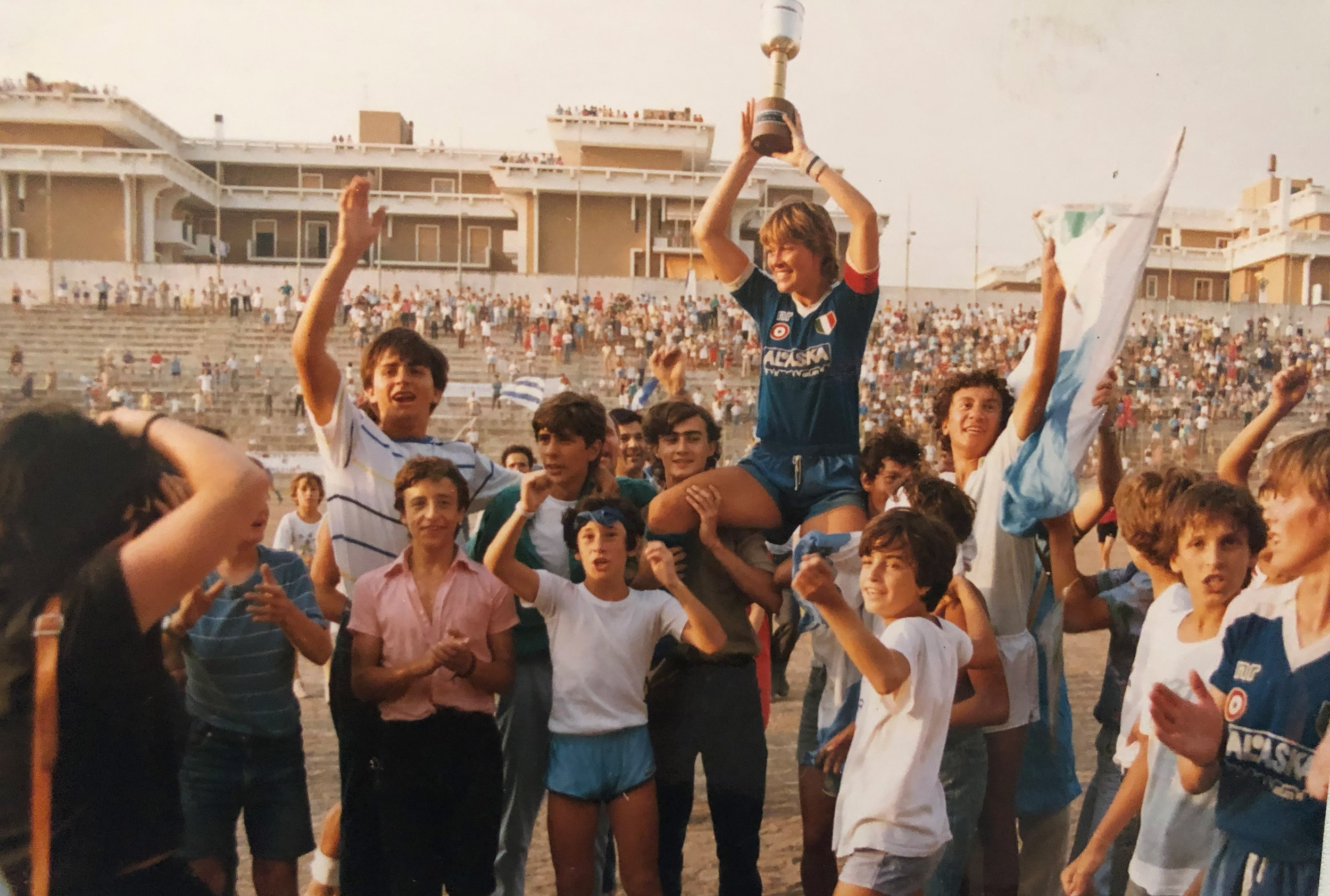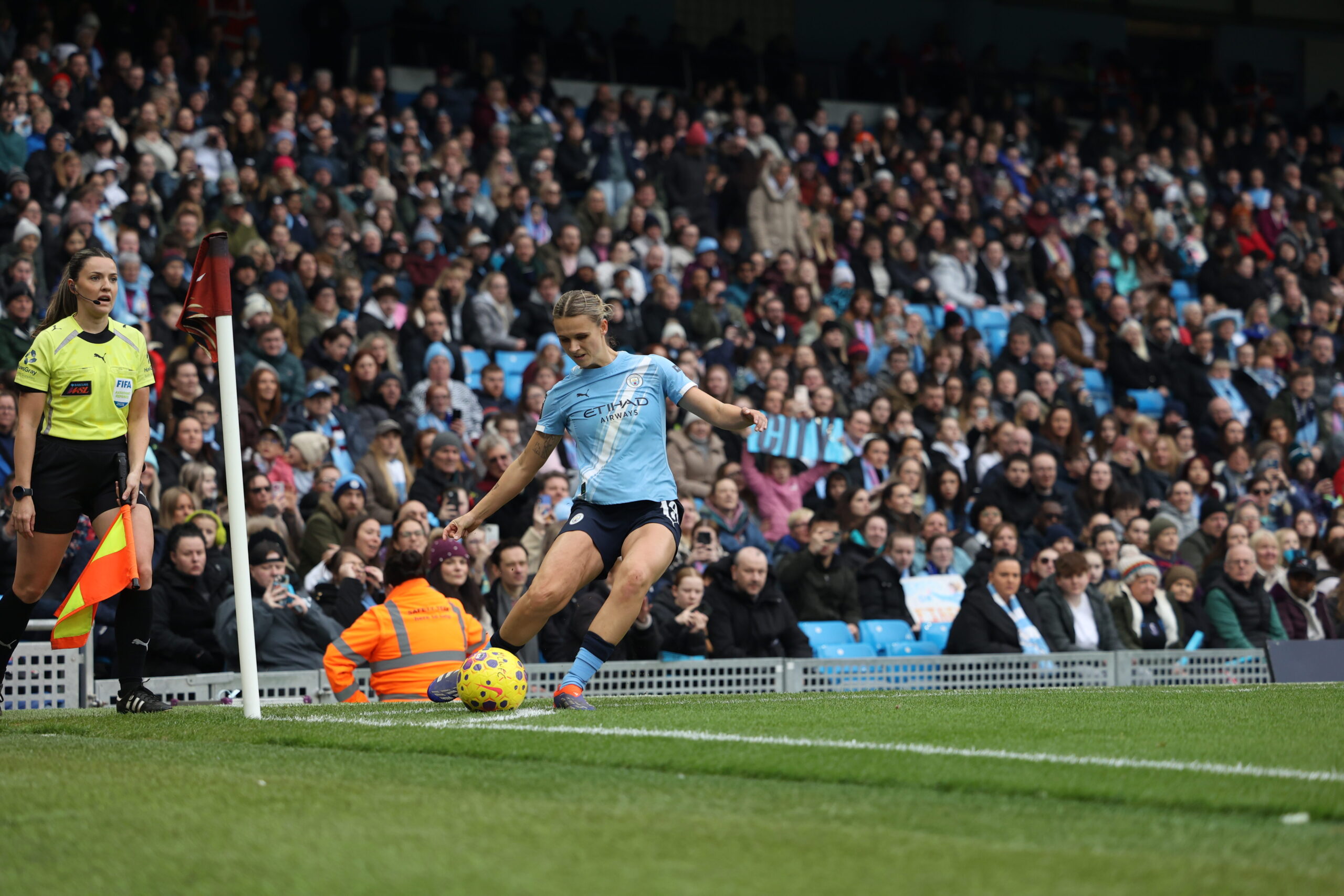The early days of women’s football are littered with remarkable stories of determination and perseverance. In the face of rampant sexism, adversity and societal exclusion, women have strived to fulfil their passion of just playing football. Their stories are unique and varied. Rose Reilly’s story could be the most remarkable of these stories.
Rose Reilly is a goal scoring machine. A trailblazer. The first person from Scotland to win the World Cup whilst playing for Italy. Shunned by the country of her birth. Reilly’s story is a testament to a dedication just to play the game she loved whilst magnifying the fragility of that dream.
Born in 1955 and raised in Stewarton, East Ayrshire, Rose Reilly knew what she wanted to do with her life from the start. Like many of her era, she joined the local boys’ team Stewarton United, aged seven. Reilly recalled in a 2007 interview with the Independent that she “got a short back and sides” to look like “a wee boy” so that she could play. She became Ross Reilly.
“It wasn’t at school. Girls couldn’t even go into the boys’ playground, so I was up against it right away. Women’s football was outlawed in those days,” she remembers.
If she was caught playing football with the boys, she was severely punished.
Even from such an early age, her extraordinary talent was clear to see. After scoring 8 goals in a game, a scout for Celtic wanted to sign her immediately. However, Reilly’s coach was quick to inform the scout of her identity. A young Reilly was bemused by this, saying in a 2017 Guardian interview:
“But why can I not play for Celtic if I’m good enough?“
“What’s the problem if they think I’m a wee boy anyway?”
Despite also showing serious potential in athletics, almost competing in the 1970 Commonwealth Games; Reilly knew it had to be football. She had won silverware with both Stewarton United and Westthorn United in Scotland whilst also representing her country of birth in Scotland women’s first official international against England in November 1972.
Yet for Reilly to fulfil her childhood dream, she had to travel further afield. Alongside Scotland teammate Edna Neillis, Reilly approached Daily Record journalist Stan Shivas about opportunities for the duo to become professional women’s footballers. Shivas was initially puzzled by the request but was able to get the teenagers a trial at Stade de Remis, France.
They both excelled. Rose Reilly remembers that:
“They couldn’t get the ball off us. We ran riot and they wanted to sign us right away.”
In 1973, Reilly helped Remis win the league and was on the move again to Italian giants AC Milan. Maybe for the first time in her career, she felt like a true professional. Reilly played in front of 20,000 fans in one of football’s most iconic stadiums and another league title was to follow. Her dreams had seemingly come true. Yet the Scottish FA had different ideas.
In 1975, the Scottish FA banned Reilly alongside Neillis from playing in her home country. The reason for the ban was supposedly due to criticism of Reilly of the Scottish FA, but the details behind the incident remain murky to this day. Reilly herself was indifferent on the decision stating:
“It was their loss. I’d moved on. I wasn’t being big-headed, but I’m practical, realistic. I just thought: ‘How small-minded’.”
In theory, Scotland should have supported their brightest sporting exports. They instead prioritised sexism and misogyny. Scotland’s short sightedness was Italy’s gain. By the 1980s, Reilly had dominated Italian women’s football. Multiple 40 goal seasons coupled with eight Serie A titles for various clubs up and down Italy. In the particularly remarkable season of 1978-79, she played for both Lecce in Italy and her previous club Remis in France, winning the league titles with both.
The pinnacle of her career came in 1984. She became an adopted Italian and due to somewhat dubious means, was able to represent Italy in the Mundialito, the unofficial Women’s World Cup. Reilly was named captain and led Italy to the trophy, beating West Germany 3-1 in the final. She is currently the only person born in Scotland to win the World Cup. By the time of her retirement in 1995, she made 14 appearances for Italy.
In recent years, Reilly’s home country have recognised her achievements. She received a PFA Scotland Merit award in 2011, the first woman to do so. In 2020 an MBE for services to women’s football followed this. Scotland had finally made the requisite steps to acknowledge her legacy.
Reilly’s story is one of traditional dismissal of women’s football combined with an astounding drive to play football at the highest level possible, regardless of objection and obstacle. Her efforts are now being felt by a new generation of both Italian and Scottish girls who have the same dreams as Reilly. They stand on the shoulders of a giant.



